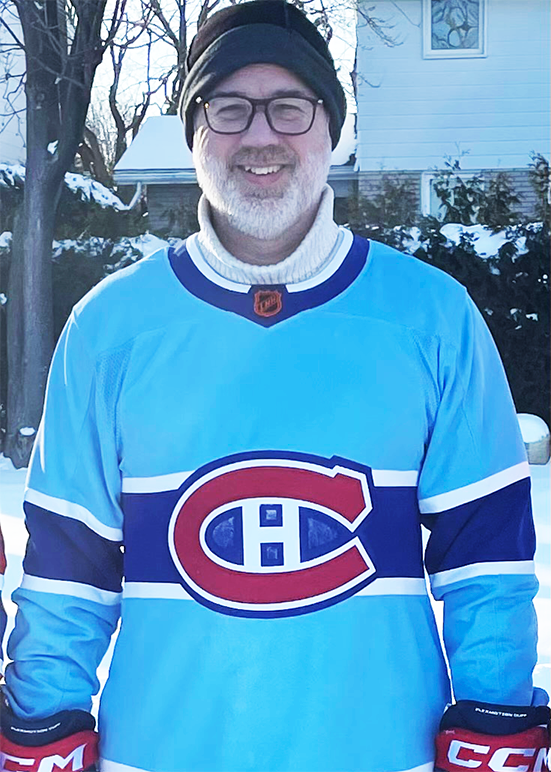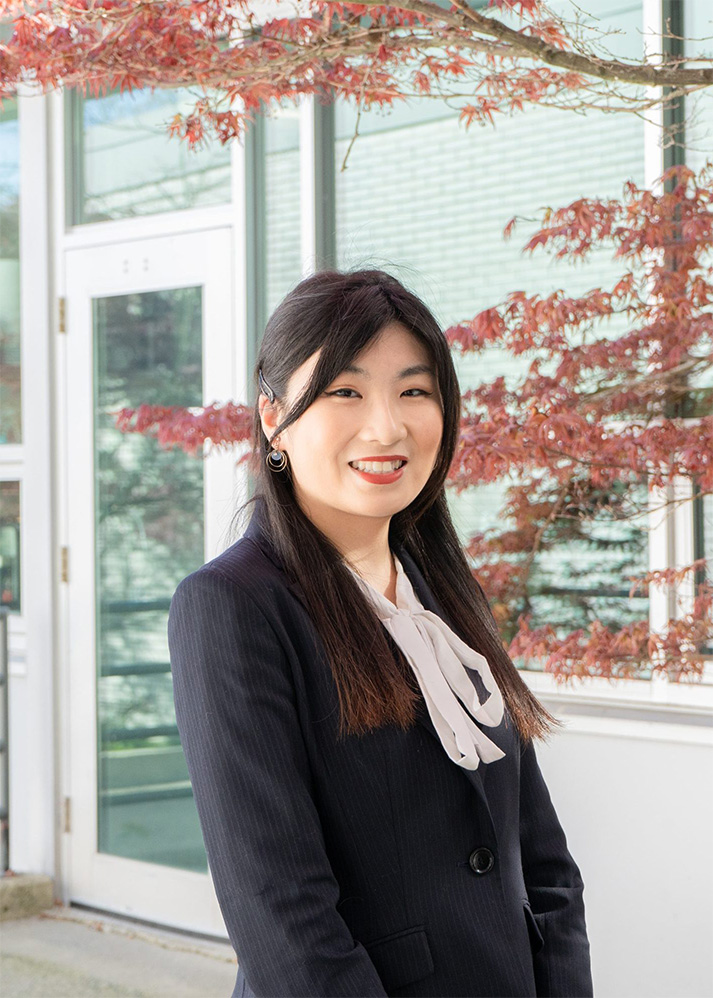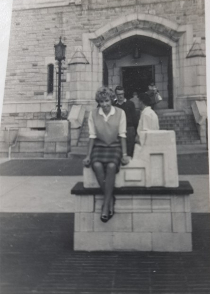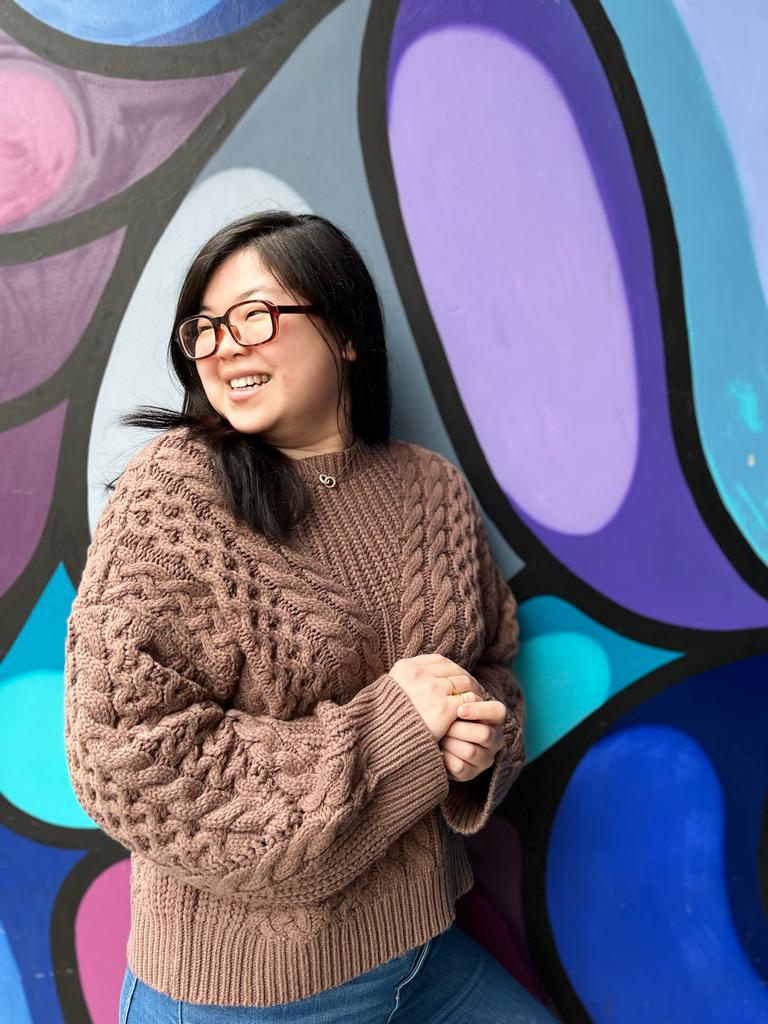Jeremy Wallace

Why did you choose your program at UBC and what did you enjoy most about it?
UBC’s Graduate Program in French Studies was recommended to me by a professor at the University of Victoria where I completed both my BA (Honours) and MA in French.
Ultimately, the mentoring I received from my thesis director, Dr. Ralph Sarkonak, was perhaps the most impactful aspect of the program.
What were some of your most meaningful experiences at UBC?
I met my future wife at UBC! She was also a French Studies graduate student at the time.
While at UBC, I also had the opportunity to do a one-year exchange in Paris at École normale supérieure.
What choices did you make at UBC that contributed to your career success / journey?
I was able to get work experience on and off campus. These opportunities included working as a French instructor and as a marker of provincial examinations with the British Columbia Ministry of Education. Additionally, I worked as a part-time movie critic on CBUFT, a French-language television station by ICI Radio-Canada Télé based out of Vancouver.
What was your first job after graduation and what other jobs did you have before your current position?
I got a job working for the Member of Parliament for the riding of Vancouver Quadra, which includes the UBC campus.
After approximately three years of working on Parliament Hill in Ottawa, I successfully completed the Foreign Service Exam and have been with the Department of Foreign Affairs (now Global Affairs Canada) ever since. I’ve had diplomatic postings in Warsaw, Poland and at NATO in Brussels, Belgium.
Is your current career path as you originally intended? What challenges did you face in launching your career?
No, I thought I would be a French teacher or professor after graduating with a PhD in French from UBC. However, I was fortunate to get hired by the Member of Parliament local to UBC’s campus at the time to work for him in Ottawa and that opened up some other possibilities for me.
What do you like about your current job and what do you find challenging? How does it relate to your degree?
I work a lot with people and different teams as a public service manager and executive. In addition to my work as Executive Director for Cabinet and Parliamentary Affairs, I am also the Champion for Official Languages at Global Affairs Canada, which I find very rewarding.
Working in both English and French with Francophone and Anglophone colleagues is very stimulating. It is also fulfilling to engage with Canadians in both official languages when representing the Government of Canada.
The work I did as part of my degree—reading, researching, analyzing, writing—are all key to being an effective public servant working on public policy issues.
Moreover, the ability to communicate clearly, structure one’s thoughts, and present information in various forms (memos, briefings, emails, etc.) concisely and in ways that are tailored appropriately to different audiences (internal, external), are skills that one continually perfects. In my case, I feel that I only began to acquire such proficiency at university, after much work.
From your experience, what has been the value of having an Arts degree?
It has been valuable for me to have a broad base of knowledge in literature and language, and to have been exposed to different types of thinkers and writers from various cultures and countries.
I also value having been taught by different types of teachers, each with their unique strengths and individual approaches to the material.
What advice would you give to students and alumni interested in breaking into your industry?
There are regular opportunities to apply to work for the federal government. I would also say: “If at first you don’t succeed, try and try again!”
It is also important to view your career as a process. It may include setbacks, but these can turn out to be blessings (although they will not feel that way at the time). Your path may not look like what you thought it would be (or what others said it should look like), and that’s okay. It may be a good thing.
What advice would you give your graduating self?
It is good to be concerned about what other people think, up to a point. Ultimately you can trust your judgement. You’ve earned it.
Jeremy Wallace



Why did you choose your program at UBC and what did you enjoy most about it?
UBC’s Graduate Program in French Studies was recommended to me by a professor at the University of Victoria where I completed both my BA (Honours) and MA in French.
Ultimately, the mentoring I received from my thesis director, Dr. Ralph Sarkonak, was perhaps the most impactful aspect of the program.
What were some of your most meaningful experiences at UBC?
I met my future wife at UBC! She was also a French Studies graduate student at the time.
While at UBC, I also had the opportunity to do a one-year exchange in Paris at École normale supérieure.
What choices did you make at UBC that contributed to your career success / journey?
I was able to get work experience on and off campus. These opportunities included working as a French instructor and as a marker of provincial examinations with the British Columbia Ministry of Education. Additionally, I worked as a part-time movie critic on CBUFT, a French-language television station by ICI Radio-Canada Télé based out of Vancouver.
What was your first job after graduation and what other jobs did you have before your current position?
I got a job working for the Member of Parliament for the riding of Vancouver Quadra, which includes the UBC campus.
After approximately three years of working on Parliament Hill in Ottawa, I successfully completed the Foreign Service Exam and have been with the Department of Foreign Affairs (now Global Affairs Canada) ever since. I’ve had diplomatic postings in Warsaw, Poland and at NATO in Brussels, Belgium.
Is your current career path as you originally intended? What challenges did you face in launching your career?
No, I thought I would be a French teacher or professor after graduating with a PhD in French from UBC. However, I was fortunate to get hired by the Member of Parliament local to UBC’s campus at the time to work for him in Ottawa and that opened up some other possibilities for me.
What do you like about your current job and what do you find challenging? How does it relate to your degree?
I work a lot with people and different teams as a public service manager and executive. In addition to my work as Executive Director for Cabinet and Parliamentary Affairs, I am also the Champion for Official Languages at Global Affairs Canada, which I find very rewarding.
Working in both English and French with Francophone and Anglophone colleagues is very stimulating. It is also fulfilling to engage with Canadians in both official languages when representing the Government of Canada.
The work I did as part of my degree—reading, researching, analyzing, writing—are all key to being an effective public servant working on public policy issues.
Moreover, the ability to communicate clearly, structure one’s thoughts, and present information in various forms (memos, briefings, emails, etc.) concisely and in ways that are tailored appropriately to different audiences (internal, external), are skills that one continually perfects. In my case, I feel that I only began to acquire such proficiency at university, after much work.
From your experience, what has been the value of having an Arts degree?
It has been valuable for me to have a broad base of knowledge in literature and language, and to have been exposed to different types of thinkers and writers from various cultures and countries.
I also value having been taught by different types of teachers, each with their unique strengths and individual approaches to the material.
What advice would you give to students and alumni interested in breaking into your industry?
There are regular opportunities to apply to work for the federal government. I would also say: “If at first you don’t succeed, try and try again!”
It is also important to view your career as a process. It may include setbacks, but these can turn out to be blessings (although they will not feel that way at the time). Your path may not look like what you thought it would be (or what others said it should look like), and that’s okay. It may be a good thing.
What advice would you give your graduating self?
It is good to be concerned about what other people think, up to a point. Ultimately you can trust your judgement. You’ve earned it.



